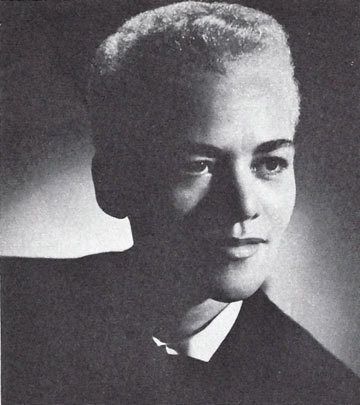
LGBT+ people discovered a collective rights-consciousness in American society in the aftermath of Stonewall. Before the uprising, LGBT+ people often internalized prevailing attitudes that queer people suffered from some psychological pathology and belonged on the margins of society. After Stonewall, they saw themselves as one of many empowered minority groups militating for their civil rights.
According to the legendary history of the Stonewall Uprising—in its most fabulous recitation—the resistance began when black transgender activist Marsha P. Johnson threw the first brick at police as they tried to arrest her in the early morning of June 28, 1969. In reality, Johnson was still on her way to the Stonewall Inn when the police raid began. It was Johnson’s birthday, and she wanted to celebrate by dancing the night away at the dingy, Mafia-owned Stonewall Inn. Although the bar lacked running water and served watered-down drinks from unwashed glasses, the Stonewall was one of the few places in New York’s Greenwich Village where LGBT+ people could dance together in any attire they chose. When the police made a surprise raid on the Stonewall Inn, they arrested anyone they deemed inappropriately dressed for their gender. A police officer struck Stormé DeLarverie, a black lesbian, with his baton as she tried to drag her out the door of the Stonewall Inn. Stormé DeLarverie punched back, and the crowd of patrons outside the bar rushed the police. With impeccable timing, Marsha P. Johnson arrived on the vanguard of the rebellion. She climbed a lamppost and hurled a brick at a police cruiser, smashing the windshield. Many eyewitnesses later recalled the iconic moment when they saw Johnson atop the lamppost as the defining moment in the struggle, even as the earliest histories of the event centered on the liberation of white cisgender gay men.
 Photo of Stormé DeLarverie
Photo of Stormé DeLarverie
LGBT+ people discovered a collective rights-consciousness in American society in the aftermath of Stonewall. Before the uprising, LGBT+ people often internalized prevailing attitudes that queer people suffered from some psychological pathology and belonged on the margins of society. After Stonewall, they saw themselves as one of many empowered minority groups militating for their civil rights. Following Stonewall, Marsha P. Johnson co-founded Street Transvestite Action Revolutionaries (STAR), an organization dedicated to combating homelessness among trans youth. Johnson’s activism reflected the profound influence of the Black Power Movement had on the early development of the Gay Liberation Movement. James Baldwin was one of the early and most powerful voices of the movement, and his 1968 Tell Me How Long the Train’s Been Gone celebrated the Black Power Movement and the centrality of black gay and lesbians in the revolutionary struggle for justice. Although homophobia created internal divisions within the Black Power Movement, the Black Panther Party co-founder leader Huey Newton envisioned “a working coalition with the gay liberation and women’s liberation groups” in 1970. Newton’s called out homophobia within the Black Power Movement, demanding that slurs be “deleted from our vocabulary, and especially we should not attach names normally designed for homosexuals to men who are enemies of the people, such as [President Richard] Nixon and [Attorney General John] Mitchell. Homosexuals are not enemies of the people.” Newton’s clarion call reverberates in 2020, particularly as we confront racism and privilege within the LGBT+ community.
Stonewall represented a watershed moment in both the Black Power and Gay Liberation movements. As the battle for Christopher Street raged in the waning days of June 1969, activists from the Black Panther Party joined the fight against police brutality. In the face of state-sponsored homophobia, Stonewall liberated people “who dare display their anger, especially those who are told they're not allowed that emotion” as they fought in the streets for the right to exist. Marsha P. Johnson, Stormé DeLarverie, and hundreds of people of color rose up and showed the world that queer black lives matter in the summer of 1969. Reclaiming the revolutionary potential of Pride Month means recognizing and renewing the alliances and solidarities forged at Stonewall.